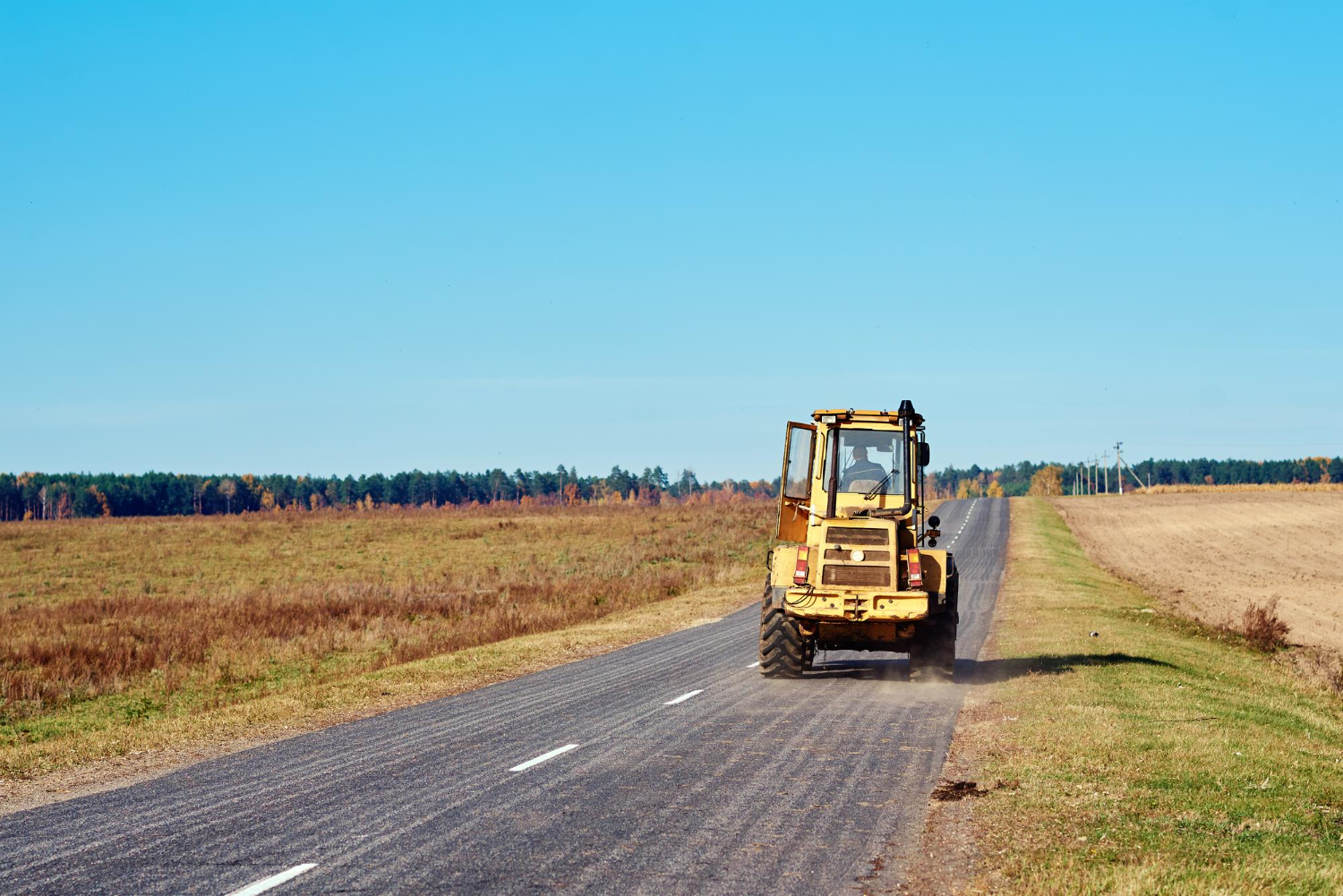

Can Unregistered Agricultural Machinery Be Used on Public Roads?
Agricultural vehicles have specific rules and regulations when it comes to public roads. These vehicles include tractors, combine harvesters, trailers and other farming machinery. Here are some of the key points regarding agricultural vehicles, registered and unregistered, and their use on public roads.
They must be roadworthy
MOT Requirements – Most agricultural vehicles do not need and MOT, but they must still be roadworthy. Commercial vehicles and those travelling more than 15 miles away from their base might need a goods vehicle test.
Brakes and Lights – Your vehicle must have functioning brakes, lights, indicators and reflectors when in use on public roads.
Speed Limits – Agricultural vehicles are generally restricted to lower speeds on public roads. Tractors can travel at around 25mph, unless they’re designed to go faster (with proper certification). If you’re towing a trailer the speed limit may be lower, 20mph in most cases.
Vehicle Registration
Agricultural vehicles and machinery that is travelling on public roads must be registered and display number plates.
Vehicles that are primarily used off-road can use ‘red diesel’ which is a fuel that has a tax reduction. There are restrictions on its use for vehicles used on public roads (e.g. farm related tasks like transporting crops) but it cannot be used in commercial haulage.
Towing and Trailers
Weights limits for trailers – Towing a trailer with an agricultural vehicle means that you are limited to a weight restriction. The trailer itself must meet safety standards and the combination must not exceed certain weight limits (e.g. 31 tons for a tractor + trailer if it complies with brake and safety regulations).
Towing speed limits – Agricultural vehicles have a lower speed limit (20mph) when towing, and drivers must make sure that the load they are carrying is secure.
Width and Height Restrictions
Some agricultural vehicles are very large, so there are rules about vehicle width and height when using a public road. Any vehicle that exceeds a 2.55m width will likely need an escort or at least give advanced notice when travelling on the public highway.
Environmental and Safety Regulations
Hazards – Farmers are responsible for cleaning or clearing away any mud and debris left on the roads by their vehicles. They could be fined if anything left behind creates a hazard.
Tyres – The vehicle’s tyres must be in good condition and appropriate for road use to reduce the risk of accidents or damage to the road’s surface.
Road tax exemptions – Many agricultural vehicles are exempt from paying road tax if they are solely used for agriculture, horticulture, or forestry work.
However, unregistered agricultural machinery cannot generally be used on public roads. Any farming vehicle or machinery that needs to be driven on a public road must be registered with the DVLA and have correctly displayed number plates. But there are some exceptions to the rule, where an unregistered agricultural vehicle can be legally used on the road:
Temporary or Occasional Use
Unregistered agricultural vehicles may be used on a public road where access from one field to another is needed, or a short distance of road is the access to nearby land. This is limited to infrequent use and roadworthiness must still be met. Vehicles must comply with road safety regulations and be insured.
Exemptions
Certain low-speed vehicles (e.g. small, specialised agricultural vehicles) could be exempt from registration in specific circumstances. These exemptions, however, are not very common and are usually limited to machinery that doesn’t travel far or travels at low speed, on public roads. Usual roadworthiness rules apply. If the vehicle is used regularly on public roads, then it will require registration.
Road Insurance
Agricultural machinery must be insured for road use, even if it is unregistered. To use an uninsured vehicle on a public highway is illegal and the driver may be subject to prosecution if caught.
Driver Licensing
Farmers or farm workers driving agricultural vehicles on public roads must hold a valid category F driving licence, which is included in most UK car driving licences. Even if the vehicle’s main use is off-road, the licence and insurance must cover use for public roads.




